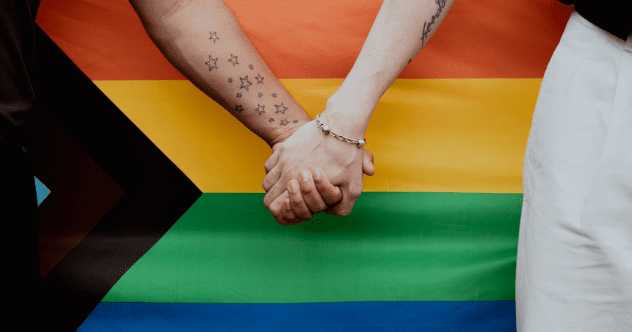In our interconnected globe, discussions on gender and sexuality are more vibrant than ever. However, numerous pervasive misconceptions need clarification. This article aims to debunk ten common misconceptions about gender and sexuality, encouraging inclusivity and an open-minded dialogue.
Women Who Don’t Want Kids and Single Mothers Hold No Value
The belief that women who choose not to have children or single mothers are without value is both outdated and inaccurate. Women who choose a child-free lifestyle often invest their time and energy in other activities, contributing significantly to their careers, communities, and personal growth. This contradicts the notion that motherhood defines a woman’s worth.
Single mothers demonstrate remarkable strength, balancing work, parenting, and personal development. They greatly contribute to the economy, challenging stereotypes that their single status diminishes their value. Studies suggest that single mothers are more likely to pursue higher education and become active members of their communities.
Recognizing a woman’s value extends beyond her family status is vital. Appreciating the diverse choices and unique contributions of all women, whether they are child-free or single mothers, enriches our society.
Men Are Violent and Aggressive
The stereotype that men are inherently violent and aggressive is a widespread misconception. While some individuals may exhibit aggressive behavior, attributing it solely to men oversimplifies the issue.
Research indicates that aggression is not limited to one gender. Studies show that women can be just as aggressive as men, although their expressions of aggression may differ. Factors like upbringing, environment, and individual personality influence behavior.
Men, like women, are diverse with a range of emotions and personalities. Societal expectations can reinforce harmful stereotypes. However, many men reject these stereotypes and advocate for healthier expressions of masculinity.
Focusing on individual behavior rather than generalizations is essential for dismantling stereotypes and promoting a more inclusive society.
Without Traditional Gender Roles, Your Marriage Will Fail
The misconception that marriages require traditional gender roles to succeed is inaccurate. Successful marriages depend on communication, understanding, and shared responsibilities. Studies indicate that couples who communicate openly and share tasks based on strengths report higher satisfaction.
Relationships evolve beyond traditional gender roles. Partners can contribute to chores, decision-making, and nurturing, leading to a more balanced and happier marriage.
Equality in marriage promotes mutual growth, understanding, and stronger bonds between partners, proving that rigid stereotypes do not define love and partnership.
Men Are Naturally Better Leaders
The belief that men are naturally superior leaders is a stereotype that has persisted for centuries. Leadership qualities are shaped by experiences, education, and personal development, not gender.
Research challenges this notion. Studies indicate that effective leadership is linked to communication, empathy, and strategic thinking. Gender-diverse leadership teams enhance organizational performance.
A McKinsey & Company study found that companies with more gender diversity in leadership are 21% more likely to outperform their peers, highlighting that diverse perspectives lead to better decisions and innovation.
Debunking this misconception fosters a fairer society, allowing diverse leadership strengths to contribute to a more dynamic future.
Hobbies Are Gendered
Hobbies are often unfairly linked to gender stereotypes, restricting personal growth and supporting outdated norms. Hobbies should be sources of joy and self-expression, unrestricted by gender expectations.
For example, woodworking is often seen as a man’s domain, while knitting is for women. However, both demand creativity, patience, and skill. Ada Lovelace, a pioneering mathematician, is regarded as the world’s first computer programmer, challenging the idea that tech-related hobbies are exclusively for men.
Gendered hobby stereotypes can discourage individuals from exploring interests and talents. Embracing inclusivity can foster a culture that encourages everyone to pursue passions without gender barriers.
Being Bi or Pansexual Makes Cheating More Likely
Sexual orientation is not a predictor of fidelity. Infidelity is a complex behavior influenced by factors unrelated to sexual orientation. People of all orientations can be committed partners.
Studies show that communication, trust, and emotional connection are more significant factors in maintaining a faithful relationship than sexual orientation. Perpetuating these stereotypes adds stigma and prejudice, and understanding is much more helpful, and also respectful.
Asexuality Is Only Caused by Sexual Trauma
Asexuality, a lack of sexual attraction, is a genuine orientation that exists independently of trauma. Asexuality is a spectrum, and asexual individuals have complex romantic attractions, as well.
Research supports that asexuality is an innate orientation. There is no evidence that trauma is a factor.
Assuming asexuality is the result of trauma perpetuates stereotypes and misunderstands human sexuality. Approaching discussions with an open mind is essential.
A Person’s Sexuality Can Never Change
Sexuality is fluid, and the idea that it never changes is outdated. Sexual orientation can evolve. As individuals grow, experiences and self-awareness can influence sexual identity.
Sexuality combines biological, environmental, and psychological factors, making it a dynamic part of human identity.
Debunking this myth fosters inclusivity and allows individuals to explore their true selves, promoting an environment where individuals feel empowered.
Gender Expression Matches a Person’s Gender and Sexuality
It’s crucial to understand that gender expression, gender identity, and sexuality are separate. Gender expression—how you express your gender—doesn’t dictate your gender identity. Gender identity is who you are, which may or may not align with societal expectations.
Sexuality involves romantic or sexual attraction, distinct from expression or identity. A person of any gender identity can have any sexual orientation.
Recognizing these differences fosters respect for diverse experiences and promotes inclusivity.
Being a Bi Woman Means You Have a Kink, but a Bi Man Is Secretly Gay
Bisexuality is a sexual orientation, not a fetish, and is when individuals are attracted to both men and women, and this attraction is not rooted in fetishization.
Labeling bisexual men as secretly gay oversimplifies their orientation. Bisexuality exists on a spectrum, and these assumptions perpetuate stereotypes.
Understanding this fosters inclusivity and allows individuals to embrace their true selves without judgment.
In Conclusion
By addressing and dispelling misconceptions about gender and sexuality, we pave the way for a more inclusive and understanding society. Recognizing the validity and diversity of individual experiences is critical in fostering respect and acceptance for all.
Leave your thoughts in the comments below as we continue this important conversation.










